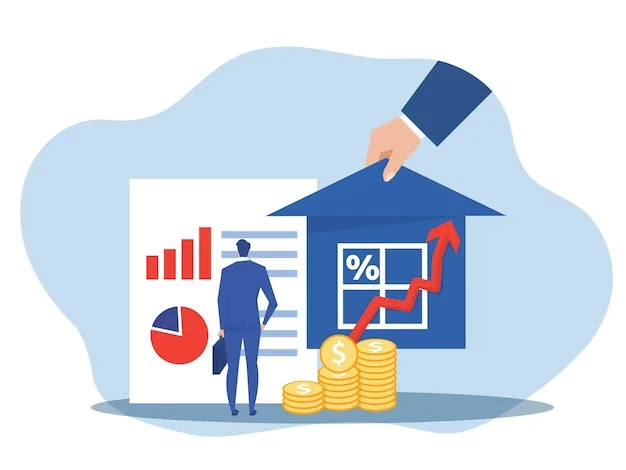In your pursuit to find an ideal resident, you may come across the debate concerning renting vs. buying in Toronto. While both options are profitable and have downsides, evaluating each against your priorities, preferences, and requirements is paramount to making an informed decision. Whatever option you choose will have a considerable impact on your financial future. This article deep dives into the debate about renting vs. buying in Toronto, yielding clarity and reinforcing informed decision-making.
Table of Contents
1. Analyzing the Potential of the Windsor Housing Market
2. Get the Most Out of The Windsor Housing Market: Tips for Homebuying and Property Selling
3. Buyer Tips
4. Seller Tips
5. AIPL Canada: Get the Most Out of Windsor Housing Market
6. Conclusion
What to Choose or Skip while Renting vs Buying in Toronto?
The debate concerning Renting vs Buying in Toronto is not possible without the following grounds:

Contact AIPL
For Hassle-Free
Home-Buying Journey!
Investment Potential X Lower Costs
Real estate has remained profitable in Canada due to the robust economy and healthy per capita income. It offers great returns and price appreciation. But home buying is a costly affair requiring substantial investment, comprising upfront fees, closing charges, taxes, duties, and maintenance expenditures.
Renting, on the other hand, is much cheaper and easier to align with if you are short on budget. Renting attracts expenses in the form of security deposits and monthly rents, which, as a whole, cost significantly less than what you address in home-buying.
On the downsides, renting can cause inconveniences like unexpected departures owing to property sales or other unforeseen circumstances. So, renting has a risk-reward ratio that you must consider.
Another thing that makes renting a burden is the responsibility for property damage. In most cases, tenants are responsible for taking care of the property and addressing damages. So, keep these things in mind when deciding on renting vs. buying in Toronto.

Stability X Flexibility
Homeownership gives you a sense of freedom and relieves you from the burden of paying consistent expenses like rent. Although home-buying is expensive, it is a one-time endeavor that will offer you many benefits, such as the freedom to customize, zero restrictions on accommodation, altering the architecture, or building an additional space. Additionally, as a homeowner, you do not have to worry about eviction, unexpected departures, or legal conflicts.
On the downside, being a homeowner mitigates the freedom to relocate frequently. This can be an issue for people who love to explore different living places. Although renting requires cash reserves to address fixed expenses like monthly rent, it allows individuals to move freely as and when required.

Building Equity X Lack Of Equity
Homebuying translates to building equity in the long run. Every repayment against a mortgage elevates your ownership stake, giving you a sense of authority. This equity is a valuable asset and yields various financial benefits over time.
Unfortunately, with renting, you do not have access to such benefits. There is no scope for ownership since the property belongs to the owner.
However, home-buying is expensive as you will pay your mortgage for the next 15-20 years, significantly impacting your life for years to come. There is a risk-to-reward ratio when it comes to a debate about renting vs. buying in Toronto. Consider your finances, needs, and prospects when deciding on renting or buying.

Qualifying For Buying and Renting
When going for mortgages, most banks delve into your credit record, employment history, and income to ascertain your financial standing. The significant down payment can ease the mortgage terms. Though you can go for the lower threshold, it has its cons.
Lenders also compute the debt-to-income ratio, comparing total debts to gross income. The lower ratio signifies that you can handle mortgage payments and vice versa. Renting is less complicated in this context as it only requires vetting of credit history and score, rental history, and income of the tenants.
When delving into renting vs. buying in Toronto, keep these differences in mind to make an informed decision.

Dealing With Expectations and Reality
The decision to buy or rent is not something individuals make frequently. Rather, such decisions come to light during different life stages, such as starting a family, getting married, entering retirement, etc. While both options have distinct pros and cons, you must know what works best for you. With that being said, you can use the following tips to help with the decision-making:
- If you are at a crossroads between buying and renting in Toronto, let the experts do the heavy lifting. They know the property market inside out and, thus, can offer you the best deal based on your budget and plan.
- Go through the market trends to know the exact property’s worth or prevailing rent cost.
- Take the overall cost, comprising interest rates, taxes, closing costs, and security deposit, into account when buying or renting.
AIPL Canada: Resolve Woes Concerning Renting vs Buying in Toronto
One can plunge into the endless debates concerning Renting vs Buying in Toronto, emphasizing pros and cons. But it is your finances and future plans that decide what is best for you. When seeking clarity on what to choose or skip, connecting with an expert can take you an extra mile. That’s where AIPL Canada comes in.
Regardless of your budget or plan, AIPL Canada has a mosaic of astonishing rental and commercial spaces, ready to serve and dazzle you. Each property is curated based on the customer’s tastes, preferences, and budget, yielding benefits that go a long way.
Whatever you are looking for—renting or buying—AIPL’s Canada Real Estate properties in Toronto and Windsor will catch your attention at first glance. With that being said, feel free to visit AIPL’s properties tailored to address diverse demands.
| Location | Property | Description |
|---|---|---|
| Toronto | Centenary Plaza | A modern shopping center at the intersection of Ellesmere Road and Neilson Road, featuring 93,398 sq. ft. of space and accommodating 20 different tenants. |
| Toronto | Villages of Abbey Lane | A large shopping center at Kingston Road and Rylander Boulevard, hosting 30 tenants and exposed to over 230,000 vehicles daily. |
| Toronto | 382 Dovercourt Road | An elegant rental property located between Little Italy and Little Portugal in downtown Toronto. |
| Toronto | 394 Dovercourt Road | A classic rental building near 382 Dovercourt Road is known for its detailed brickwork and inviting atmosphere. |
| Toronto | 1 Heydon Park Road | A contemporary 3-bedroom apartment in Little Italy, downtown Toronto, offers high-end amenities. |
Ready to Invest in
Canadian Real Estate?
Book Your Expert Consultation Today!
Get Professional
Property
Consultation!
Bottomline
In the debate about renting vs. buying in Toronto, there is no generalized answer. Whereas home-buying ensures equity creation, fosters a sense of freedom, and reinforces ownership, renting yields flexibility, attracts low costs, and mitigates myriad responsibilities. While deciding on renting or buying, keep your finances and future prospects in check. If possible, contact a seasoned company like AIPL Canada to stay ahead of uncertainties, leading to informed decision-making.
Disclaimer
This content is provided for informational purposes only and is not intended as an advertisement, financial advice, or real estate advice. The views expressed herein are the author's own and do not necessarily reflect the views of AIPL. While every effort has been made to ensure the accuracy and completeness of this information, circumstances can change, and the information may become outdated. We recommend consulting with a professional advisor before making any real estate decisions. References to specific properties, investments, or locations are for illustrative purposes only and should not be considered an endorsement or recommendation. AIPL Group and its directors, subsidiaries, officers, employees, agents, affiliates, and partners are not liable for any consequence of any action taken by the viewer relying on such material or information on this blog post.







